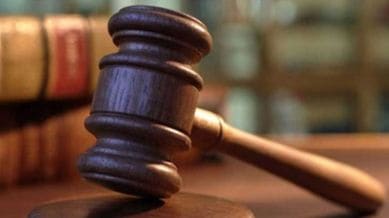Stay updated with the latest - Click here to follow us on Instagram
Pansare murder case | ‘Behind bars for 6-7 yrs, trial may take time to end’: HC on bail granted to accused
CPI leader Govind Pansare and his wife were attacked while on a morning walk in Kolhapur on February 16, 2015

Granting bail to three accused arrested in the 2015 case related to the murder of Communist Party of India (CPI) leader Govind Pansare, the Kolhapur bench of the Bombay High Court observed that they were behind bars for more than six-seven years and trial may take time to conclude.
A single-judge bench of Justice Shivkumar G Dige passed an order on October 14 on bail pleas by accused Virendra Sharadchanda Tawade, Sharad Bhausaheb Kalaskar and Amol Arvind Kale argued through advocate Pushpa Ganediwala.
A detailed order was made available later.
CPI leader Govind Pansare and his wife were attacked while on a morning walk in Kolhapur on February 16, 2015. Although his wife survived the incident, Pansare succumbed to his injuries four days later while undergoing treatment at a hospital in Mumbai.
The Maharashtra Anti-Terrorism Squad (ATS) alleged that those responsible for the attack were connected with the right-wing organisation Sanatan Sanstha and its allied groups.
In August 2022, the High Court transferred the probe from the Criminal Investigation Department’s Special Investigation Team (SIT) to the Maharashtra ATS.
The ATS identified 12 individuals as accused, framing charges of murder, attempted murder, and criminal conspiracy against 10 of them under the Indian Penal Code and the Arms Act. Earlier this year, the High Court granted bail to six of the accused.
The prosecution, while opposing the bail plea, alleged that during the probe, Kale’s handwritten diary was seized, which included details of his associates from various states as well as planning to make bombs, shooting, and training in bursting bombs, in code language.
It added that on the day of Pansare’s murder, Kale was present at Kolhapur along with Tawade and the same showed his involvement in the present crime.
“The role attributed to the applicant (Kale) is of conspiracy. The applicant is behind bars for around seven years. It may take time to conclude the trial. This Court has released the co-accused on bail having similar allegations. Considering these facts, the applicant is entitled for bail on principle of parity,” the HC held.
In case of Kalaskar, the prosecution had alleged that he provided training to the co-accused in handling arms, preparing petrol bombs, among others, and a sessions court had also convicted him, sentencing him to life imprisonment in the 2013 Dr Narendra Dabholkar murder case and that he was also involved in the Nalasopara arms haul case. The prosecution added that he had planned the 2015 killing of scholar M M Kalburgi and the 2017 murder of journalist Gauri Lankesh, therefore he should not be released on the grounds of parity.
The HC noted that while the role attributed to Kalaskar in the present crime of him participating in arms training and conspiracy, his co-accused, who had similar allegations against them, were earlier released by the HC and Kalaskar was behind bars for over six years. The HC noted that a trial would take time to conclude, therefore he was “entitled for bail on principle of parity”.
Tawade had approached the HC against a sessions court order that cancelled bail granted to him citing a subsequent statement of witness Sagar Lakhe.
The HC noted that as per Lakhe’s statement, no other role was attributed to Tawade, except allegations of conspiracy in the present crime.
Justice Dige added that Lakhe’s statement referred to accused Sachin Andure’s role in shooting Pansare, therefore the same “contradicts the prosecution’s case”.
“Mere recording statement of witness Sagar Lakhe that too after three and half years of the incident cannot be a ground to cancel the bail of the applicant,” the HC noted. It added that since other co-accused having a similar role have been released on bail, Tawade was entitled for the same